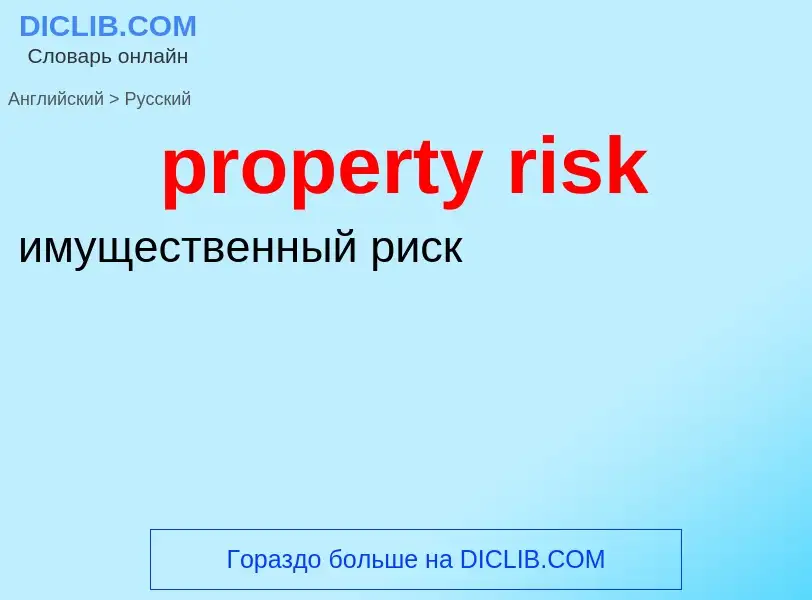Μετάφραση και ανάλυση λέξεων από την τεχνητή νοημοσύνη ChatGPT
Σε αυτήν τη σελίδα μπορείτε να λάβετε μια λεπτομερή ανάλυση μιας λέξης ή μιας φράσης, η οποία δημιουργήθηκε χρησιμοποιώντας το ChatGPT, την καλύτερη τεχνολογία τεχνητής νοημοσύνης μέχρι σήμερα:
- πώς χρησιμοποιείται η λέξη
- συχνότητα χρήσης
- χρησιμοποιείται πιο συχνά στον προφορικό ή γραπτό λόγο
- επιλογές μετάφρασης λέξεων
- παραδείγματα χρήσης (πολλές φράσεις με μετάφραση)
- ετυμολογία
property risk - translation to ρωσικά
математика
относительный риск
Ορισμός
Βικιπαίδεια
Risk-based pricing is a methodology adopted by many lenders in the mortgage and financial services industries. It has been in use for many years as lenders try to measure loan risk in terms of interest rates and other fees. The interest rate on a loan is determined not only by the time value of money, but also by the lender's estimate of the probability that the borrower will default on the loan. A borrower who the lender thinks is less likely to default will be offered a better (lower) interest rate. This means that different borrowers will pay different rates.
The lender may consider a variety of factors in assessing the probability of default. These factors might be characteristics of the individual borrower, like the borrower's credit score or employment status. These factors might also be characteristics of the loan; for example, a mortgage lender might offer different rates to the same borrower, depending on whether that borrower wished to buy a single-family house or a condominium.
Concerns have been raised about the extent to which risk-based pricing increases borrowing costs for the poor, who are generally more likely to default, and thereby further increases their likelihood of default. Supporters also argue that risk-based pricing expands access to credit for high-risk borrowers (who are often lower-income), by allowing lenders to price this increased risk into the loan.

